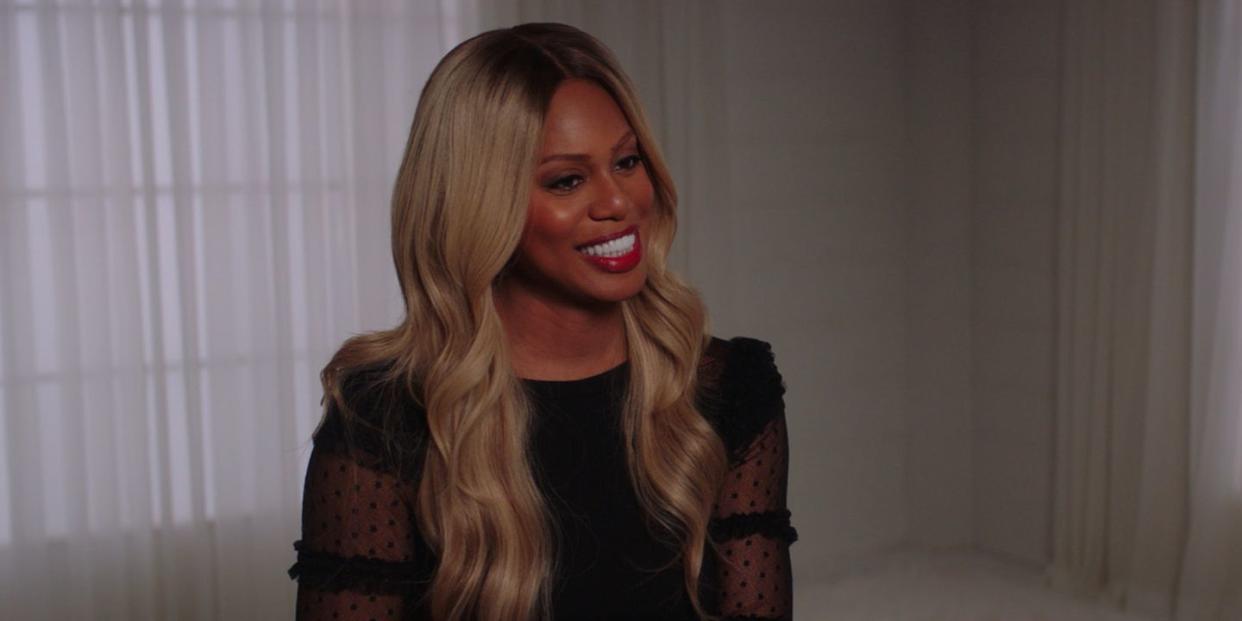Laverne Cox Is Highlighting Trans Representation in a New Netflix Documentary

Disclosure, a documentary that examines the history of transgender representation on-screen over a hundred years, premieres on Netflix on June 19.
Laverne Cox is an executive producer and appears in the film, along with Mj Rodriguez, Lilly Wachowski, Chaz Bono, and other trans artists.
With the new documentary Disclosure, executive producer Laverne Cox, director Sam Feder, and producer Amy Scholder offer a much-needed, in-depth look at the history of transgender representation on-screen.
The doc sifts through trans portrayals in film and television, going as far back as 1914's A Florida Enchantment to as recent as 1999's Boys Don't Cry and 2018's Pose. Featuring commentary from Cox and trans artists and creators including Lilly Wachowski, Yance Ford, Mj Rodriguez, Jamie Clayton, and Chaz Bono, the work outlines how far trans stories have come, their evolution throughout the years, and how they reflect society's concepts of gender and sexuality. After first premiering at the 2020 Sundance Film Festival, Disclosure will finally be available to stream on Netflix this Friday, June 19.
And it couldn't come at a more pressing time. The title will hit the streaming platform just days after the Trump administration scrapped legislation that would protect transgender people from health care discrimination, in the wake of author J.K. Rowling's transphobic tweets and essay, and as Black trans lives continue to be taken—and often forgotten, misgendered, and deadnamed—by racist violence and police brutality.
"That's the paradox of our representation, is the more we are seen, the more we are violated," advocate and writer Tiq Milan says in the Disclosure trailer.
Feder acknowledged that though we have reached a new high in trans representation, it's important to remember the individuals in the community who aren't as visible or famous. "It's dangerous when you elevate one person to a point of success and ignore the realities for the majorities of the rest of the community," the director told Entertainment Weekly. "I wanted to give trans and non-trans people a context to understand the changes in our culture, the history, and how we got to this point of visibility, all while not losing sight of the fact that visibility in itself is not the goal. It's just a means to an end."
You Might Also Like

